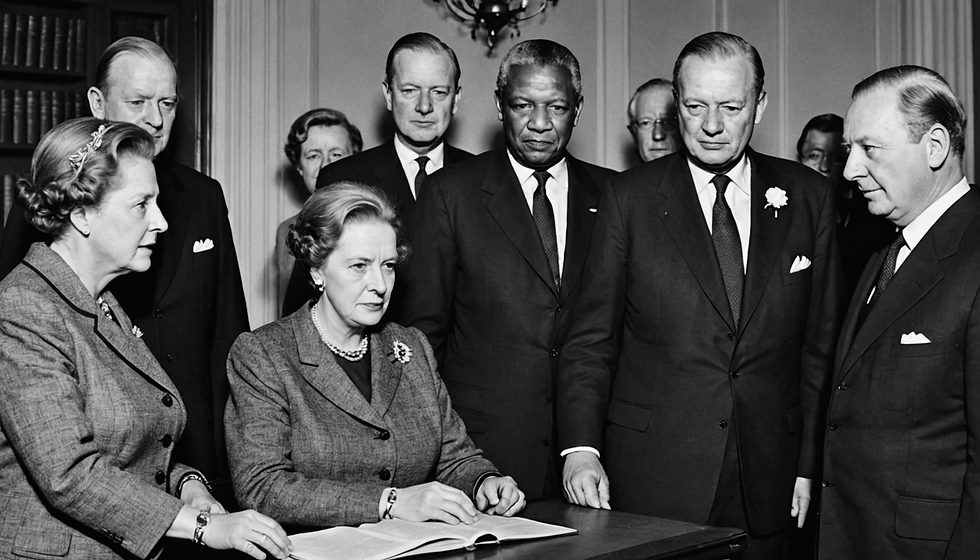Rose-Marie Boylan: Positioning a new intervention system-based value proposition
- R.M. Boylan

- Feb 27, 2022
- 4 min read

Pandemic aftermath: NHS UK Panel the need for systems thinking in healthcare
Rose-Marie Boylan, BSc. M.A.
New intervention system-based value proposition
The pandemic aftermath is pushing transformational change. "There is a movement towards multi-layered system-led planning and therefore purchasing." (2) Consequently, customers, purchasers & drug reimbursement decision-makers' explicit needs have changed. Reengineering mindsets around HTA, reimbursement, patient outcomes, HEOR value is necessary to adapt to a system-based mindset.
The devastating consequences of the pandemic and its impact on the lives of populations necessitates new advances in social economics & policy. There is a sense of urgency to link social values to economics. Cooperative models for decision-making might shed light on issues relating to need, clinical value, health economics, outcomes research, justice, equity, gender, cooperation, labour markets, poverty, class, institutions, public policy, social determinants of health, disability, morbidity, mortality and bioethics. These are metrics governments & payers need to consider for decision-making and planning budgets over a 3-5 year planning horizon. The need to move from individualistic economics to rethinking commercial strategies within a system-based model is becoming business common sense. (Lutz, M. 2006. Economics for the Common Good)
NHS UK Panel Discussion Outputs for Pharmaceutical Manufacturer's Commercial Value Proposition Strategic Planning
NHS UK in a recent group discussion with Wilmington Healthcare discussed "Pitch Perfect: Understanding the new value proposition for the NHS." Similar models to the NHS UK model may start emerging in other markets like U.S. Medicaid, Medicare, Canada & EU nations in light of the shifts to military spend and the need to cover healthcare expenditure debts from the expenditures on unforecasted pandemic vaccines & healthcare services. The NHS has generously described what a value proposition needs to look like and include. In the NHS article they have used marketing themes in an attempt to describe value as a driver of commercial success. In this article I have bolded what they have requested as changes they would like to see from the pharmaceutical industry in future dossiers. (2)
"The shifting mindset and preferences of the NHS customer means that the pharmaceutical industry now needs a new way of organizing and describing its commercial propositions." (2)
Wilmington Healthcare Oli Hudson describes what the outputs of this new value proposition must look like for drug purchasing decisions. https://pf-media.co.uk/spotlight/pitch-perfect-understanding-the-new-value-proposition-for-the-nhs/
"Positioning the value."
Positioning in the market is what determines value for the buyer, decision-maker, purchaser or payer. In Jack Trout's book "Positioning: The Battle for your Mind" he says "The customer is always right and by extension, the seller or communicator is always wrong."
The French say:
"Trouver le créneau"
"Find the hole, then fill it."
Value is what the customer is willing to pay for. Marketing can be a manipulative practice when it does not begin with the customer's explicit needs and addressing them first and foremost. The manipulation occurs when there is no hole to fill, therefore no meaningful positioning. Poor positioning drives market failures.
Everything is about positioning.
If the entire value dossier is not positioned to the right audience or there is no positioning, there is no story and no potential value to effectively communicate or offer.
The true art of marketing and understanding the very essence of positioning is the value proposition begins with the positioning. And the positioning begins with the mindset that the customer is always right and by extension we are always wrong. (Trout, J. 1981). Many people may not agree with this notion and may even find it antagonizing.
The benefit of looking at everything from the buyer's perspective is the gap & threshold to demonstrating value is much higher; so we work harder at understanding the explicit needs and filling the hole. Optimism has been found to be a blindspot in planning and may cause strategists to overlook the real problems in brands, products and files leaving them overlooked.
"Industry needs to understand this shift in mindset and become more adept at constructing a new system-based value proposition; a strong evidence-based argument that covers the wider span of considerations shaping NHS today." (2)
Rob Berry, Head of Innovation and Research at Kent Surrey Sussex Academic Health Science Network discusses the importance of articulating value at different levels of the health sector as a driver of commercial success.

What should the value proposition include according to the NHS?
"Clinical value is defined as clinical efficacy, safety, patient benefits and the costed benefits it can bring to the given service. Additionally, how it can help the purchaser with demand management, cost pressures and workforce capacity and human capital management." (2)
With the new Integrated Care Systems (ICS) the value proposition must address:
How it supports population health goals.
How it addresses health inequalities.
How it delivers new & sustainable ways of providing care.
How it helps the ICS manage its many strategic challenges.
How it impacts the entire integrated system and pathway.
Digital solutions, technologies & pathways with the NHS and patients.
Extending, improving treatment in the community.
Post-pandemic recovery of the NHS.
Work productivity: Staffing and impact on workforce.
Safety
Usability by multi-disciplinary teams.
Patient activation which enables patients to manage their condition and monitor their treatment, outcomes and adherence.
Sustainability (NHS Long-term Plan priority in procurement tenders).
Security & sustainability of supply
Economic value
Technical value: Achievement of valid outcomes for a patient population.
Allocative value: Equitable distribution of NHS resources.
Personalized value: Alignment of outcomes with individual patient priorities.
2). https://pf-media.co.uk/spotlight/pitch-perfect-understanding-the-new-value-proposition-for-the-nhs/
6). Trout, J., Ries, A. (1981). Positioning: The battle for your mind. Warner Books.
7). Lutz, M.A. (1999). Economics for the common good. Routledge.





Comments